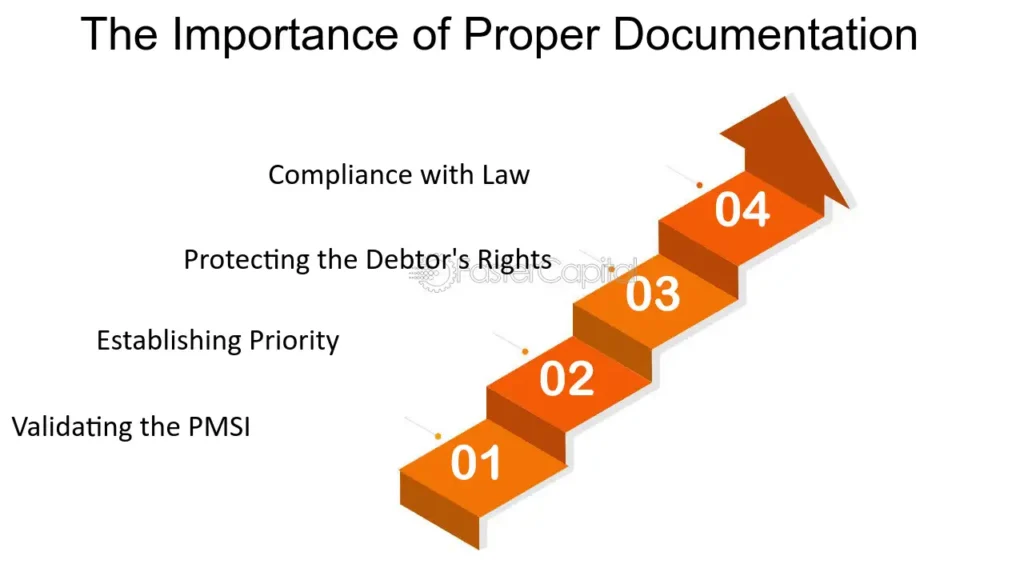Running a successful business requires more than just a great idea and consistent effort. One of the most critical, yet often overlooked, aspects of maintaining a healthy business is ensuring your documentation is always in order. Proper documentation serves as the backbone of your business operations, ensuring legal compliance, supporting financial transparency, and preserving your company’s credibility. Whether you’re just starting out or have been in business for years, understanding the importance of key documents can help you protect and strengthen your business status.
Why Documentation Matters in Business
Documentation forms the official record of your business’s activities, decisions, and obligations. It provides proof of ownership, outlines relationships between stakeholders, records financial transactions, and ensures compliance with federal, state, and local laws. Without proper documentation, your business may face unnecessary risks, legal disputes, missed opportunities, or regulatory penalties.
Here are several key reasons why documentation is essential:
- Legal Protection: Contracts, licenses, and compliance forms protect your business from liability and demonstrate your adherence to regulations.
- Financial Clarity: Accurate financial records support audits, help in securing loans, and allow for informed decision-making.
- Operational Continuity: Internal policies, employee agreements, and training materials ensure everyone is aligned and that operations can continue smoothly even if key personnel leave.
- Reputation Management: Being able to produce necessary documents promptly shows professionalism and builds trust with clients, investors, and authorities.
Essential Documents Every Business Should Maintain
While documentation needs vary by industry and business type, certain foundational documents are essential for every business. Here’s a breakdown of some of the most important ones:
1. Formation and Ownership Documents
When you first establish a business, you’ll file articles of incorporation or organization with your state. These documents officially register your business and define its structure. Also, you should keep:
- Operating agreements or bylaws
- Shareholder or partnership agreements
- Business licenses and permits
These documents clearly define who owns what, who is responsible for what, and how decisions are made. They also establish the legal foundation for your business and may be required when applying for financing or dealing with disputes.
2. Tax and Financial Records
Accurate tax documentation helps you avoid penalties and supports financial growth. Key documents to keep include:
- Federal and state tax filings
- Bank statements and reconciliations
- Payroll records
- Receipts and expense reports
- Annual financial statements
These not only ensure you remain compliant with tax authorities but also provide transparency and insight into your business performance.
3. Employment Documents
If you hire employees or contractors, having the right employment-related documentation is vital for both legal compliance and healthy workplace culture. Keep:
- Offer letters and employment contracts
- IRS Form W-4 and I-9 forms
- Non-disclosure and non-compete agreements
- Employee handbooks and policy manuals
These help avoid misunderstandings and ensure all parties are on the same page regarding expectations and responsibilities.
4. Contracts and Agreements
Your business may enter into agreements with suppliers, clients, partners, and service providers. It’s crucial to maintain copies of:
- Service agreements
- Purchase orders and invoices
- Lease or rental agreements
- Client contracts
Having these on file protects you in case of disputes and clarifies the terms of business relationships.
5. Compliance and Standing Documents
To prove that your business is active, compliant, and in good standing with the state, you may need to show evidence in the form of renewals or verifications. One such document is a certificate of good standing — a government-issued certification that your business has met its statutory requirements and is authorized to operate in your jurisdiction. This document is often needed for securing funding, expanding to other states, or forming business partnerships.
Best Practices for Organizing Business Documents
Proper documentation doesn’t stop at having the right papers — how you manage and store them is equally important. Follow these best practices to ensure your business is always ready to present its records:
- Go Digital: Store documents electronically using secure cloud storage. This improves accessibility and minimizes the risk of loss.
- Create a Document Management System: Organize files in a way that makes sense for your business. Categorize them by type (legal, financial, HR, etc.) and keep them updated regularly.
- Schedule Reviews: Periodically audit your documentation to ensure everything is current and compliant with new laws or business changes.
- Backup Data: Use encrypted backups to protect your documents in case of cyberattacks or hardware failures.
- Limit Access: Assign document access rights only to authorized personnel to maintain confidentiality and security.
Situations Where Proper Documentation Saves the Day
Proper documentation can protect your business during the most critical moments. For example:
- Disputes with Vendors: Having a clear contract with terms of delivery, payment, and responsibilities can help you resolve conflicts without litigation.
- Government Audits: Up-to-date tax and payroll records can demonstrate your compliance and avoid costly penalties.
- Applying for a Loan: Lenders often require detailed financial records and legal documents to assess your business’s reliability and creditworthiness.
- Selling the Business: Prospective buyers will want to inspect your legal and financial documentation before making an offer.
Final Thoughts
Keeping your business documentation accurate, accessible, and up to date is not just a box to check — it’s an ongoing process that protects your operations, supports growth, and builds trust. From contracts to compliance certificates, every piece of documentation plays a role in securing your company’s future.
By treating your paperwork with the same seriousness as your products or services, you set your business up for lasting success.




